
environment
/
November 8, 2025
During this period, Brazil’s president has reduced deforestation, but his government is pushing projects that would open the Amazon to extraction.
Luiz Inacio Lula da Silva, President of Brazil, speaks during the COP30 Leaders Summit in Belém, Pará state, Brazil, in November. 6, 2025.
(Dado Galdere/Bloomberg Viti Images)
Brazilian President Luiz Inacio Lula da Silva welcomed world leaders to Belem for the first climate summit in the Amazon, where conservationists hope he can become a champion for the rainforest and its people.
But with a divided administration, a hostile Congress, and 20th-century developmental instincts, this center-left global leader has a balancing act to do in advocating for nature protection and emissions cuts.
At the opening of the summit on Thursday, he made clear that his priority was social development, but he was clear that humanity must achieve an energy transition and halt forest loss: “I am convinced that, despite the difficulties and contradictions we face, we need roadmaps – in a fair and planned way – to reverse deforestation, overcome dependence on fossil fuels, and mobilize the resources necessary to achieve these goals.”
These difficulties and contradictions have been on stark display in recent months, as the government has announced impressive progress in reducing deforestation, while also pushing forward a number of projects that would open the Amazon region to extraction.
First, the good news. Deforestation in the Brazilian Amazon fell by 50 percent over the full three years of Lula’s third term in office. The latest annual government figures show the smallest area removed in 11 years. This is largely due to Lula’s environment minister, Marina Silva, who has implemented strong measures to counter land invasions, illegal logging, and indiscriminate mining.
Current number

As a result, the Climate Observatory estimates that Brazil’s emissions – mainly determined by the health of its forests – have fallen by 16.7 percent, likely the largest decline of any of the G20 group of the world’s 20 largest economies.
These gains were to the fore when Lula called for more countries to sign up for Brazil’s flagship initiative at the UN Climate Change Conference (COP30): the Forever Tropical Forests Facility, which aims to raise $125 billion to protect permanent forests. So far, the initiative has raised about $5.5 billion, with investments amounting to $3 billion from Norway, $1 billion each from Brazil and Indonesia, and smaller amounts from Portugal, the Netherlands, and other countries.
the money They are urgently needed to stave off the rapidly growing risk that the world’s largest tropical forest will decline beyond the point of no return, after which it will be doomed to dry up into savannah and lose many of its globally important functions of climate stabilization, water transport and habitat provision.
Leading scientists have warned that this is already happening in large areas of the Amazon, especially in the states of Mato Grosso, which has witnessed a rapid expansion of soy plantations, and Pará, where the main cause of destruction is in the beef industry. The weakening of forests due to fires (used extensively to clear land) and pollution of rivers with mercury (used in gold mining) has also accelerated.
Antonio Donato Nobre, an Earth system scientist who has worked in the Amazon for 20 years, said the forest is already showing signs of collapsing. He said droughts are becoming more severe, temperatures in some cleared areas have risen by up to 7 degrees Celsius, and degradation is accelerating even as deforestation slows. This poses a global threat, he said, not only because of the reduced ability to sequester carbon, but because weaker rainforests mean less cloud cover that reflects the sun’s heat back into space, which could pose a greater threat to global warming from greenhouse gases.
Nobre said the first climate summit in the Amazon was an opportunity to put nature at the heart of climate solutions, but it could also be a disaster if leaders only talk about the importance of the forest, while moving forward with destructive projects. He added: “My main message is: Be serious.” “The most successful enterprise on this planet is life. We have in our hands technology that is 4 billion years old, and has gone through multiple cycles of destruction, birth, and reform.”
But Lula relies on support from the agribusiness and mining sectors to maintain power. rural Politicians dominate Congress, control many ministries, and push an aggressive agenda that conflicts with forest conservation. This lobby is now the driving force in Brazilian politics.
While Lula has vetoed some of his more extreme plans to eliminate large swaths of environmental licensing requirements, he has also seemed more than willing to support other elements of his agenda to carve up the Amazon and other biomes for fossil fuel production and monoculture crops.
Three weeks ago, his government approved drilling licenses for oil and gas exploration in Foz do Amazonas, off the coast of the rainforest, a move that adds to the pollution risks facing the forest, increases the likelihood of vegetation being destroyed by related industries, and goes against the International Energy Agency’s advice that it will be impossible to meet the Paris Agreement’s goals to limit global warming unless countries completely halt new fossil fuel development.
Then there are the government’s plans to develop the BR-319 highway between Manaus and Porto Velho, which will put unprecedented pressure on the western regions of the Brazilian Amazon, which has been – until now – one of the last healthy areas of the jungle.
There is another large intact area near the northwestern border with Venezuela, but this too is threatened by plans to allow industrial mining in the Yanomami indigenous area.
“We are very concerned,” said one resident, Ihuana Yira Yanomami, who came to Belem to voice the concerns of women in her community. “We don’t want our people to suffer, we are very concerned and that is why we are speaking out, because illegal mining only brings suffering to our communities. We want to see our children healthy, without mud and without fish pollution.”
common
“Swipe left below to view more authors”Swipe →
Further south, the government announced in late August that it would “de-state” the federal waterways of three major rivers; The islands of Tapajós, Madeira and Tocantins, which is seen as a first step towards their privatization and transformation into a zone Hydrovia Water transport route for soybeans shipped from Mato Grosso.
Lula, who cut his political teeth as a union negotiator, has tended to focus more on the social benefits that could come from increased investment in the Amazon, while avoiding the greater risks that the climate crisis poses to its human and non-human populations.
This was evident last week at a pre-COP 30 publicity tour for forest communities along the Tapajós River. In the village of Vista Alegre do Capixoa, inhabited by the Kumarwara people, the president said he was ready to defend those who protect the forests, and promised to improve local health care, education and housing. This was very much in line with one of Brazil’s stated goals at the summit: to make social protection the foundation of resilience.
But during the open parts of his visit to the press, Lula did not once mention the climate issue, even though this is a growing concern for locals – and the vast majority of the world’s population.
Much of the river dried up during last year’s record drought, leaving communities here stranded and struggling to feed themselves, said Luis Antonio Pintes de Souza, head of a nearby village. He said his vegetable garden withered, most of the fruit trees died, and for the first time in his 70 years of life, he was unable to grow cassava, a staple of the Amazon diet.
He added: “The weather is becoming hotter and drier.” “I worry about my children and grandchildren.”
Others spoke of mass fish kills due to heat, pollution and falling water levels, and expressed fears that it could get worse when the river they depend on is privatized and turned into a canal for soy barges.
These uncomfortable topics – and their politically difficult solutions – did not come up during the speeches and welcome to Lula’s visit until the end, when Environment Minister Marina Silva asked for the microphone and reminded the president why they were in the Amazon this month: “The UN Climate Change Conference is the place for us to say that Brazil will do its part, in eliminating deforestation. The world must do its part, in reducing coal, oil and gas emissions. That’s why I like it when you say, sir, that it’s necessary.” Stop relying on fossil fuels.”
It was a reminder that Lula – like many world leaders – in Belém will have the good angel of the jungle on one shoulder and the fossil fuel devil on the other. The question is who will have the impact.
More of Nation
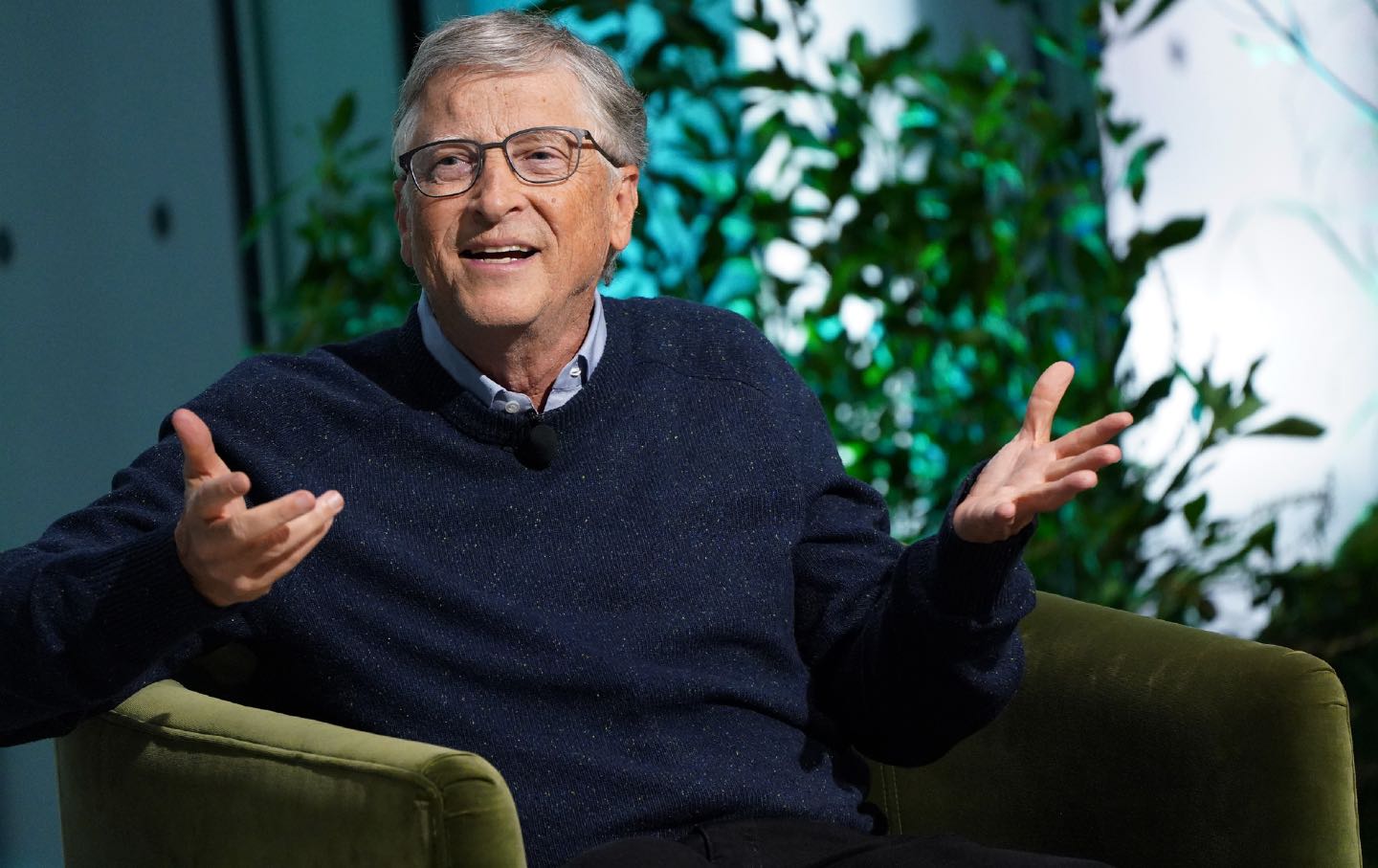
Bill Gates gets climate change wrong. It’s not a binary – humanity survives or goes extinct – it’s questions of magnitude: How many people will die or be left destitute?
Andrew McCormick

The vast majority of people want their governments to take climate action, but most mistakenly believe they are in the minority. The media is partly to blame.
Amy Westervelt
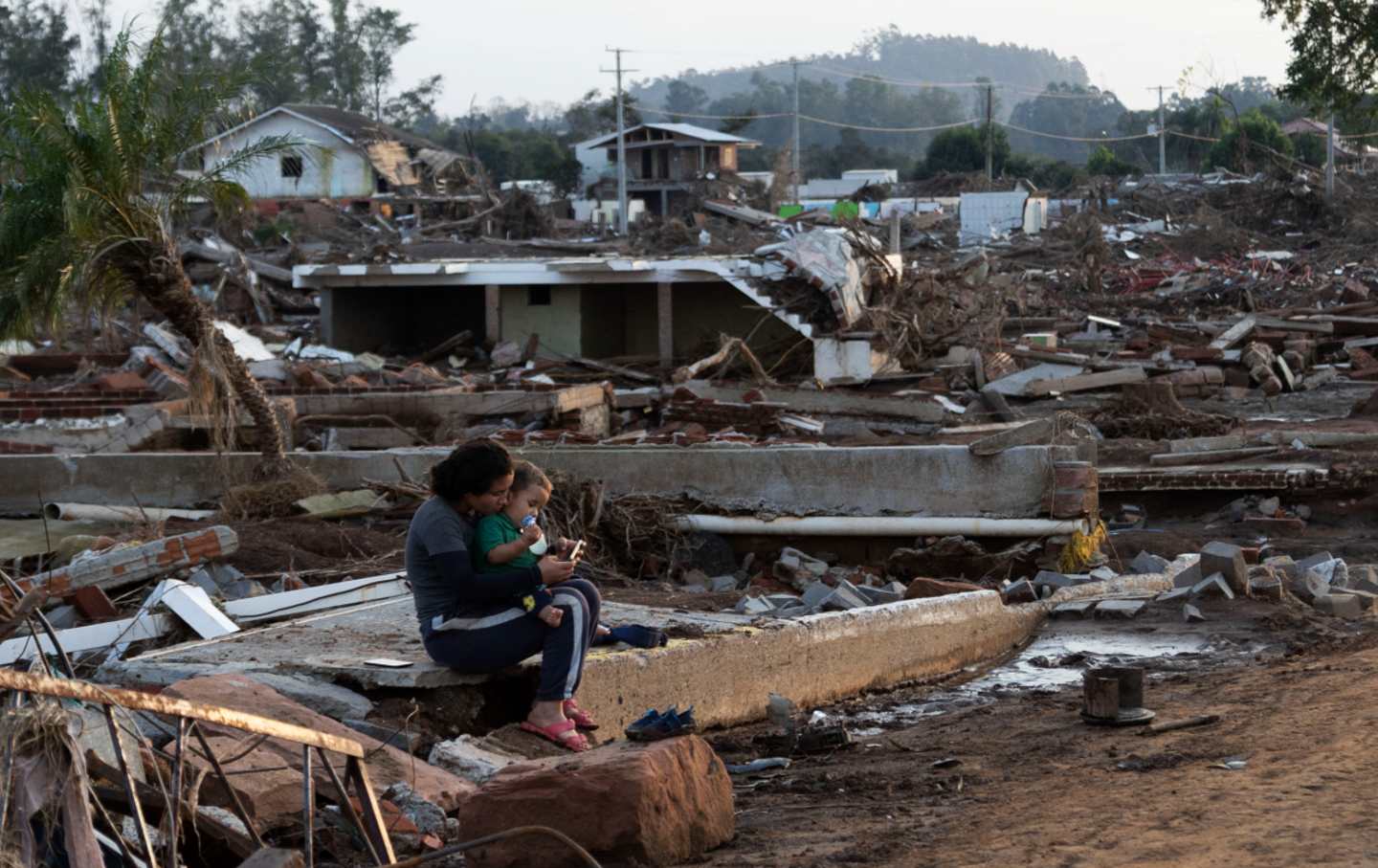
The generation coming into the world is expected to face unprecedented extreme weather events throughout their lives.
Giovanna Girardi
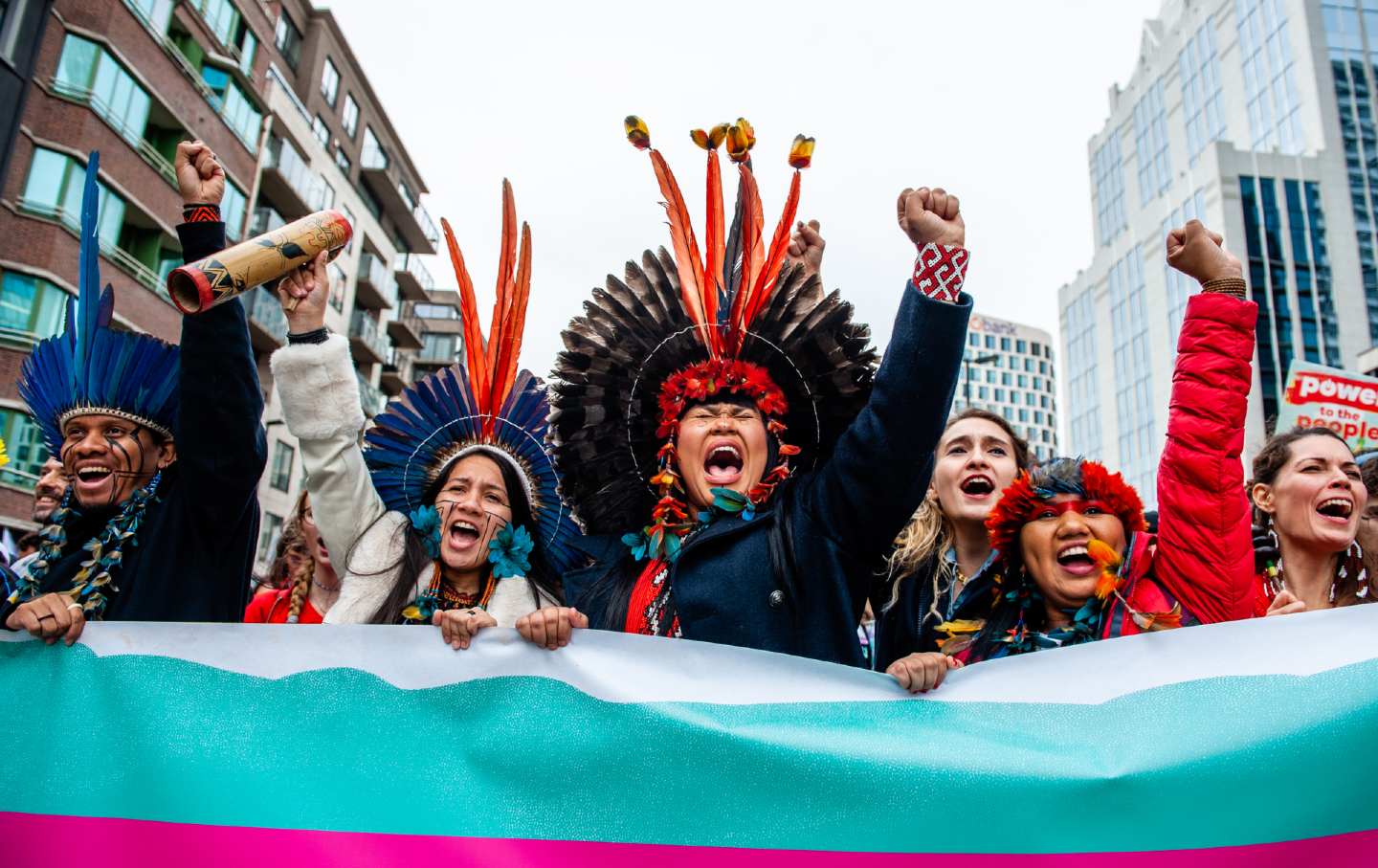
The next phase of the 89 Percent Project sheds light on the vast majority of climate.
Mark Hertsgaard
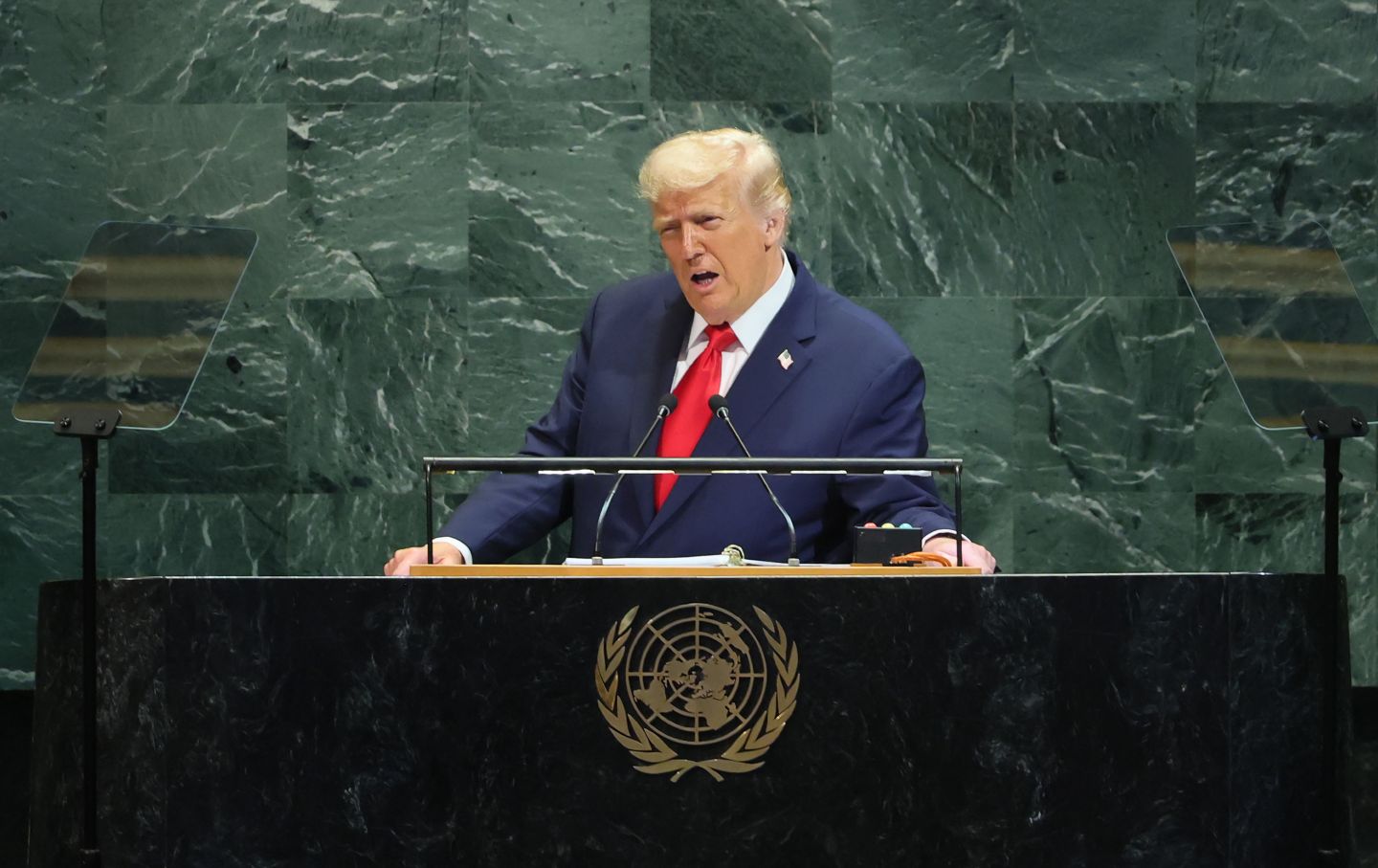
With the global rise of organized disinformation campaigns, the media must embrace the “truth sandwich” and place false claims among actual facts.
Mark Hertsgaard
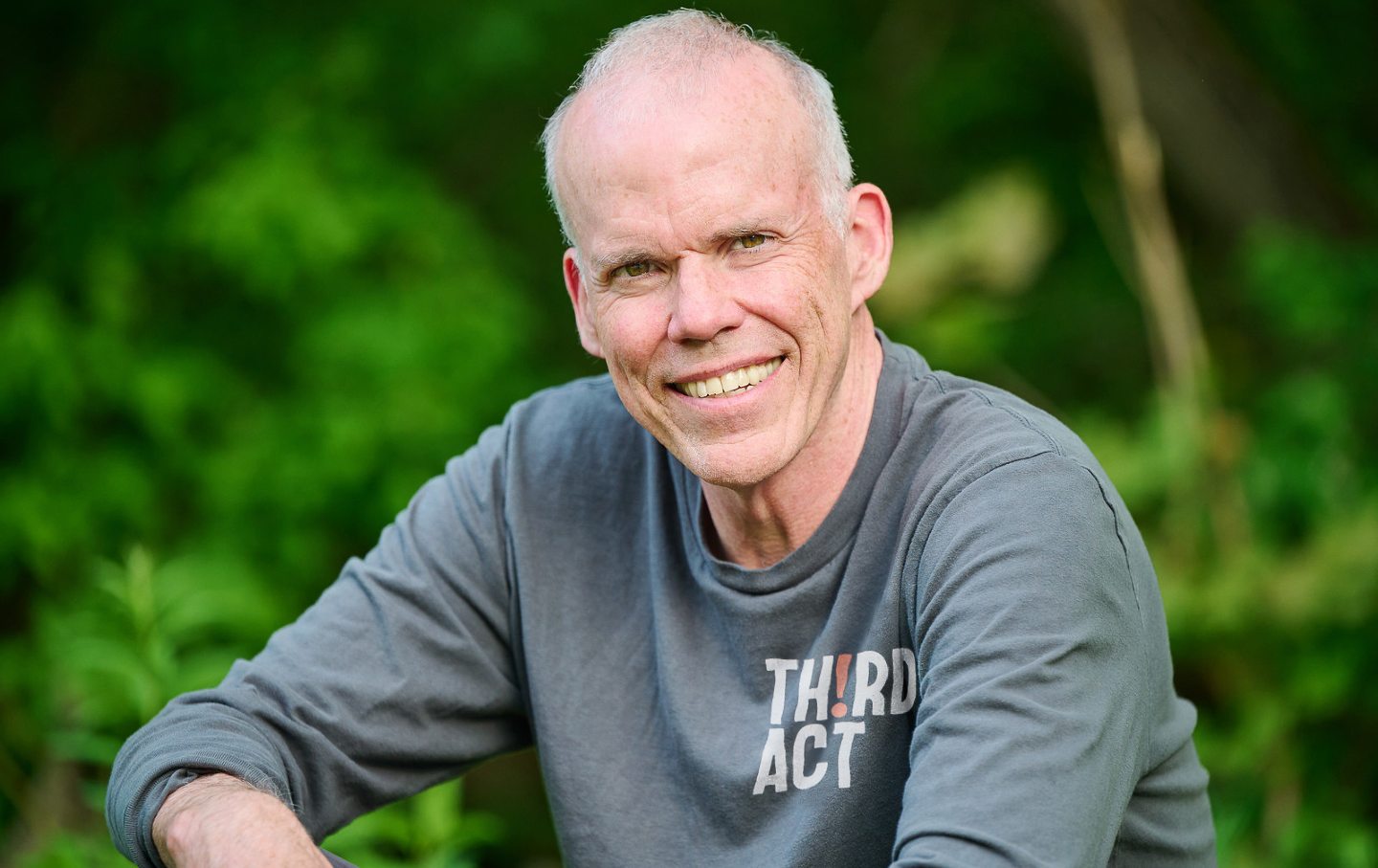
Traditional journalists complain that he is a human rights advocate, the same criticisms that Woodward and Bernstein faced during the Watergate scandal.
Mark Hertsgaard and Kyle Pope
